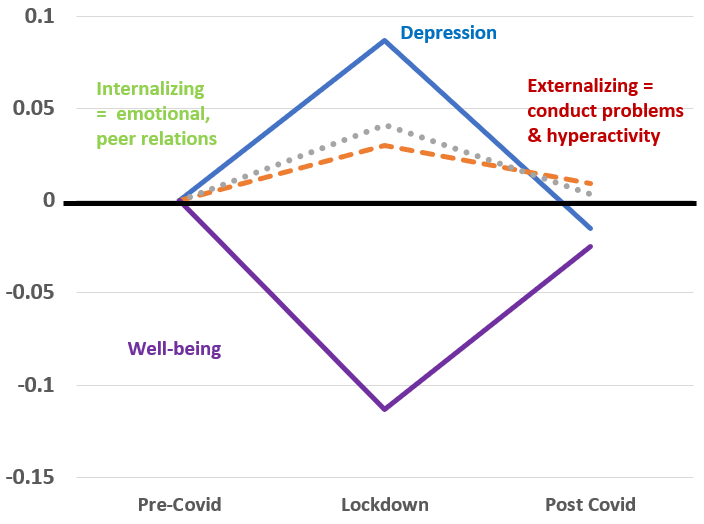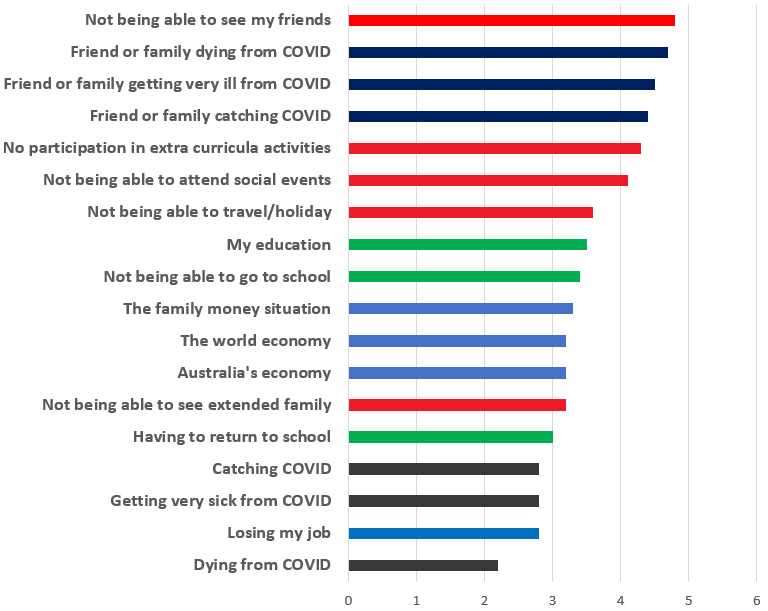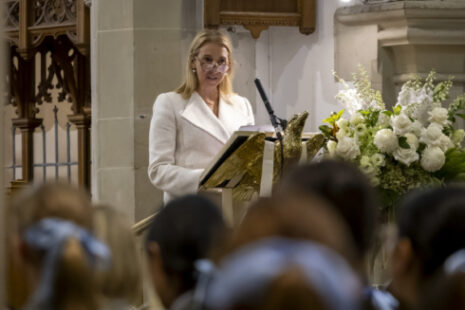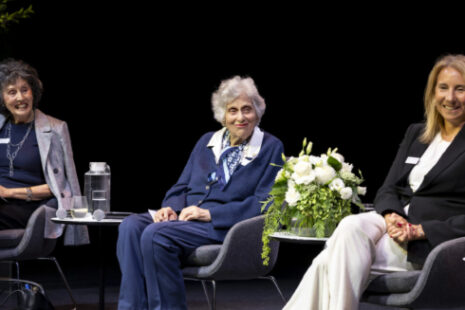Impact of COVID on Teaching
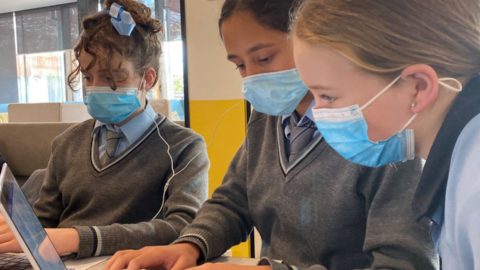
An Ode to their Expertise
I have always loved that schools are noisy places, girls laughing, balls bouncing and the odd scream of delight heard when something funny has clearly occurred. I position my desk at the window so I can take in the view of the action normally happening, and when ‘stuck on the phone’, the girls often give me a wave as they stroll past.
With the return of our VCE girls this week, a number of teachers have also commented on the change in sounds – like me, they all share a sense of excitement at the re-awakening of our St Catherine’s campus.
Further to my anticipation of the full return to campus by all our students, I have been keen to investigate research undertaken more globally about the impact of COVID teaching, and how this knowledge can assist in shaping our response more broadly as a school.
Most notably are the stories of angst about the marked effects of the pandemic on the social and emotional health of children and teenagers. The negative and strong emotions of anxiety, frustration, surface motivation (just doing the work) and boredom are clearly referred to on a regular basis in our check-in phone calls with parents. So too are they reported in the media – with calls to the government on the emerging mental health crisis in a generation of young people and adults.
One of the world’s leading educational researchers, Professor John Hattie, has presented his latest research studying the impact of COVID in schools in his paper: ‘An Ode to Expertise: What have we learnt from COVID and how can we apply our new learning’.
Hattie’s meta-analysis of research undertaken from across the world revealed, relative to baseline, the average depression scores in adolescents went up, and wellbeing went down during lockdown. However, on previous occasions, students have ‘snapped’ back to pre-COVID levels when emerging out of lockdown and back to regular schooling.
Our Head of Year 12, Mrs Tracey McCallum and Deputy Principal, Ms Merran O’Connor, individually met with every Year 12 girl to ascertain their level of wellness upon their return to School this past week. Our heightened level of academic care and emotional support, together with the very simple “are you okay?” question, hopes to provide a platform to land as the girls step towards the forthcoming exams.
In one study highlighted by Hattie, the effects of adolescents’ feelings of isolation pre and during COVID learning, showed results that adolescents were not overly concerned with the impact that COVID-19 was having on their education or their health, rather they were more concerned about friendship issues.
A need to return to Co-curricular activities on campus, and soon, I believe, is a must for all children and teenagers. It is the joy of the social interactions that occur when playing sport, rehearsing musicals and singing in choirs that provides a vehicle for creating the feeling that ‘you belong’ and is critical to their social and emotional health.
Whilst St Catherine’s holds dear the blue ribbon connection and our unique student-teacher partnership is held in high regard, COVID schooling lifts in the teacher’s mind an increased need to check on their students’ emotional and social health. Implemented on Mondays in the Senior School is a ‘high-five’ wellbeing check-in conducted with girls by House Tutors. The check-in is a subtle and careful screening process to flag students for further follow-up by specialists, such as our School Psychologists, or simply a second conversation with Heads of Year. Our Barbreck teachers, working with their girls for greater lengths of time, also undertake the wellbeing checks throughout the day.
It was soon discovered that teaching online reduced the surveillance capacity to ensure students were ‘doing’ the work, usually observed whilst walking around the classroom and peering over shoulders. COVID teaching required a switch to more of a triage approach – listening to where students were, what they were struggling with and providing feedback as ‘where to go next’, making the lessons more like a short story with a beginning, a middle and end. Pivotal to each lesson is a need to be clear about what success looks like as they start a series of lessons, considering the efficiencies as well as effectiveness of lessons.
Adopting the Goldilocks principle of challenge (not too hard, not too easy and not too boring), combined with the integration of social and emotional health in every lesson, are some of the key learnings from COVID teaching.
Needless to say, Australians have experienced many disasters such as fires, floods and cyclones. Once again with COVID, there is much evidence of resilience, getting on with solving problems and looking after and helping each other. Educators have continued to show these attributes during COVID times, hence Hattie’s research title, An Ode to their Expertise. Hattie calls to all communities to “honour their expertise, their care and investment in every student and to applaud the excellence of educators. Along with nurses and doctors, teachers are among the true heroes of COVID”.


